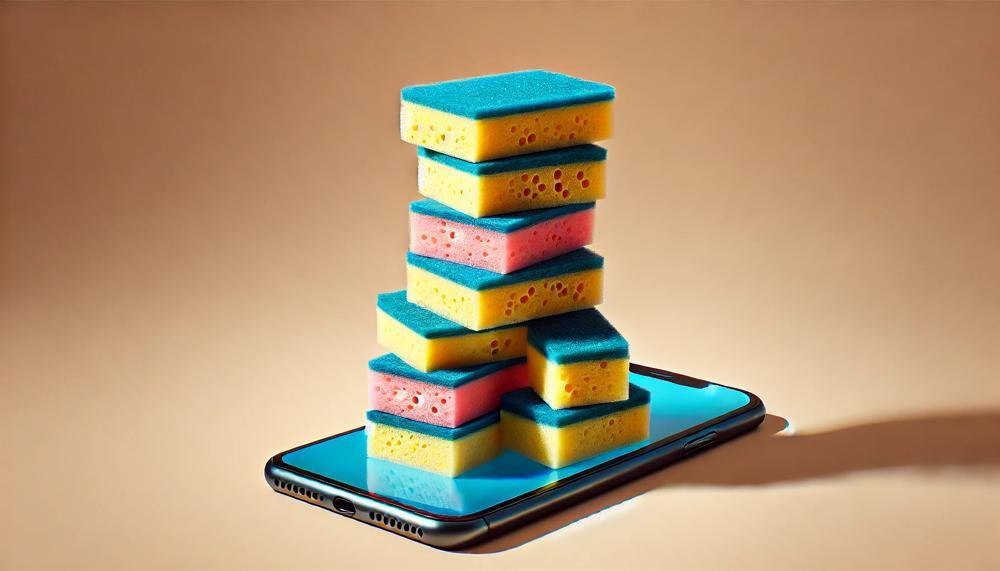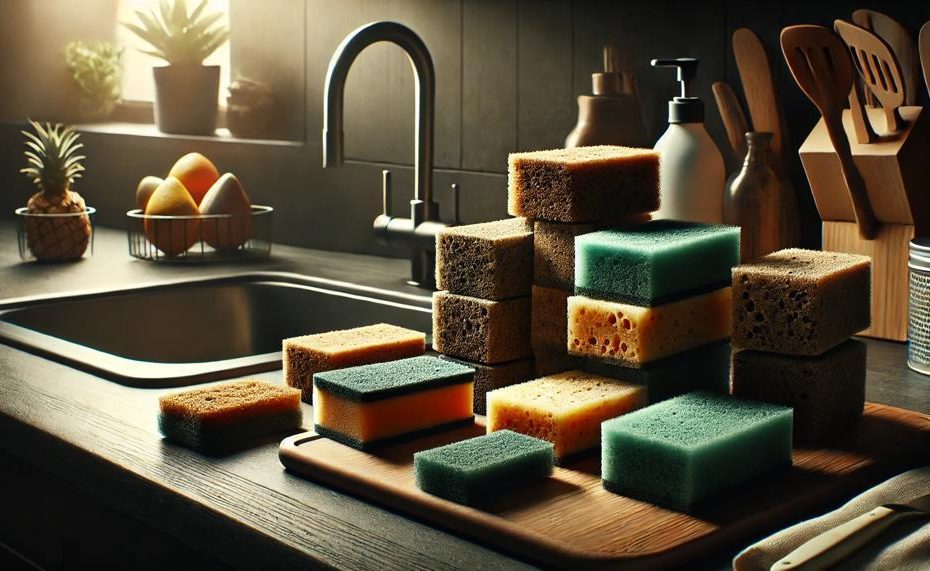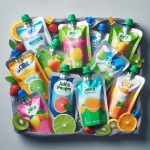No, kitchen sponges are not easily recyclable. Despite their everyday utility, traditional kitchen sponges are predominantly made from synthetic materials like plastic, which poses significant environmental challenges. These sponges contribute to pollution because they do not break down easily and can release microplastics into the water systems.
Key Takeaways:
- Traditional Sponges: Made from plastic, harmful to the environment, and not easily recyclable.
- Pollution Concerns: Contribute to microplastic pollution in waterways.
- Eco-Friendly Alternatives: Cellulose sponges, loofahs, cloth washcloths, walnut, and coconut scrubbers.
- Sustainability: Alternatives are biodegradable, compostable, and can help reduce carbon footprint.
- Environmental Impact: Choosing sustainable sponges contributes to a cleaner, healthier planet.
By opting for eco-friendly options, you can make a tangible difference in reducing waste and promoting sustainability.
These alternatives not only serve their cleaning purpose effectively but also align with environmentally conscious practices, helping us take a small yet significant step toward a greener future.
Contents
Can You Recycle Sponges?
Traditional kitchen sponges, typically made from plastic, cannot be recycled and pose environmental challenges. However, there are eco-friendly alternatives available that are biodegradable and compostable. Here’s how to handle both types:
Disposing of Traditional Sponges:

Traditional sponges should be disposed of in regular household waste. They cannot be processed through standard recycling facilities due to their plastic content and contamination from food particles.
Eco-friendly Alternatives:
Consider switching to sustainable options such as cellulose sponges, loofa, cloth washcloths, walnut and coconut scrubbers, or unsponges. These materials break down naturally and can often be composted.
| Type | Material | Disposal Method |
| Traditional Sponges | Plastic | Household waste |
| Cellulose Sponges | Wood fiber, plant fibers | Composting |
| Loofa | Natural plant fibers | Composting |
| Cloth Washcloths | Cotton, fabric | Composting (if 100% natural fibers) or textile recycling |
| Walnut and Coconut Scrubbers | Natural nut fibers | Composting |
| Unsponges | Fabric, natural fibers | Composting (if 100% natural fibers) or textile recycling |
Tips for Proper Disposal:
- Check Materials: Ensure the sponge is made entirely of biodegradable materials before composting.
- Clean First: Rinse and dry sponges thoroughly before disposal to avoid attracting pests.
- Cut Up: For faster composting, cut sponges into smaller pieces.
By choosing eco-friendly sponges and disposing of them correctly, you can help reduce your environmental footprint and contribute to a cleaner planet.
Are Sponges Biodegradable?
No, traditional kitchen sponges made from synthetic materials such as plastic are not biodegradable. They are crafted from non-renewable resources like polyester and nylon, contributing to a persistent environmental problem.
| Type of Sponge | Biodegradability | Environmental Impact |
| Traditional Kitchen Sponge (Plastic) | No | Ends up in landfills, contributing to pollution and waste accumulation |
| Sea Sponge | Yes | Biodegradable and sustainable, minimal environmental impact |
| Plant-Based Sponge (e.g., Cellulose, Loofa) | Yes | Compostable and environmentally friendly |
Impact on the Environment
The disposal of non-biodegradable sponges significantly harms the environment. These sponges accumulate in landfills, taking hundreds of years to break down. This accumulation not only clutters landfills but also potentially releases harmful chemicals into the soil and waterways as they degrade.
On the flip side, biodegradable alternatives such as sea sponges and fully plant-based sponges offer a much greener solution. These sponges break down naturally and can be composted, reducing the strain on landfill sites and minimizing pollution. Choosing biodegradable sponges can help mitigate environmental damage and promote a more sustainable lifestyle.
Are Sponges Compostable?
Yes, kitchen sponges can be composted, but not all types. Biodegradable sponges, such as those made from natural materials like cellulose, loofah, or sea sponges, can be safely composted at home or in industrial composting facilities. These eco-friendly sponges break down naturally and contribute to soil health.
Here’s a quick guide on composting different types of sponges:
| Type of Sponge | Compostable? | Notes |
| Cellulose Sponges | Yes | Made from wood fibers, they decompose in compost piles. |
| Loofah Sponges | Yes | Natural plant material that breaks down easily in compost. |
| Sea Sponges | Yes | Organic and biodegradable, suitable for composting. |
| Plastic Sponges | No | Non-biodegradable, should be disposed of in regular waste. |
| Plant-Based Sponges | Yes | Usually made from cotton or hemp, they are compostable. |
It’s important to ensure the sponges are free from synthetic additives or chemicals before composting. Rinse them thoroughly to remove any detergent residue or food particles. By choosing biodegradable sponges and composting them, you reduce landfill waste and support a healthier environment.
Are Sponges Bad For The Environment?
Kitchen sponges negatively impact the environment. Conventional sponges are made from non-renewable materials, contributing to landfill waste and pollution. Most are not biodegradable, leading to long-term environmental harm. While some sponges can be recycled, contamination from food residue and washing-up liquid often complicates the recycling process.
Eco-friendly alternatives, such as sponges made from sea sponges, wood fiber, coconut husk, or bamboo, present a greener option. These materials are biodegradable and reduce the environmental footprint. Proper disposal is crucial—synthetic sponges go in regular waste, while biodegradable ones can be composted to enrich soil.
| Type | Material | Environmental Impact |
| Conventional Sponge | Plastic/Non-renewable | Non-biodegradable, pollutes landfills |
| Sea Sponge | Natural/Biodegradable | Eco-friendly, decomposes naturally |
| Plant-based Sponge | Wood Fiber, Coconut Husk, Bamboo | Biodegradable, minimal environmental impact |
How Do You Dispose of Old Sponges?
Disposing of old kitchen sponges in an environmentally-friendly way can significantly reduce your household waste and environmental footprint. Here are some effective methods:
- Composting: If you use sponges made from natural materials like loofahs, cotton, or bamboo, you can compost them. Simply cut the sponge into smaller pieces to accelerate the decomposition process.
- Upcycling: Repurpose old sponges for cleaning non-kitchen areas, such as bathrooms, garages, or outdoor furniture. This extends their life and reduces waste.
- Eco-Friendly Sponges: Switch to biodegradable sponges that can be composted after use. Brands offering plant-based options can be a sustainable alternative to traditional synthetic sponges.
- Recycle: Some brands and recycling programs accept used synthetic sponges. Check if there’s a local scheme in your area that recycles cleaning supplies.
- DIY Projects: Use old sponges in various DIY projects, like cushioning for packaging fragile items or as a filling for homemade pet toys.
- Garden Use: Old sponges can be used in the garden. They retain moisture in plant pots, especially useful during hot weather.
- Cleaning Tools: Use old sponges to clean tools, shoes, or even your car. Their rough texture makes them ideal for scrubbing tough stains and grime.
4 Amazing Ways To Reuse Old Sponges
| Use | Description | Tips |
| Crafting and Sewing Aid | Transform an old sponge into a pin cushion by covering it with fabric. | Ensure the sponge is thoroughly cleaned and dry before use. |
| Pet Hair Remover | Remove lint and pet hair from various surfaces by wiping with a damp sponge. | Regularly rinse the sponge to remove collected hair and lint. |
| Cleaning Tough Spots | Use for scrubbing difficult areas like bathroom tiles and car tires. | Separate these sponges from those used in the kitchen to avoid contamination. |
| Plant Watering Aid | Improve moisture retention in potted plants by placing sponges at the bottom. | Cut sponges to fit the size of the pot for optimal results. |
By reusing old kitchen sponges creatively, you can reduce waste and contribute to a more sustainable lifestyle.
Conclusion
Kitchen sponges, essential tools in our daily cleaning routines, pose significant environmental challenges due to their predominant plastic composition. Traditional synthetic sponges contribute to pollution and microplastic contamination in waterways, and they are not recyclable. Disposing of these sponges in household waste is the only viable option, which unfortunately leads to landfill accumulation and long-term environmental harm.
However, eco-friendly alternatives offer a sustainable solution. Sponges made from cellulose, loofah, cotton, walnut, and coconut fibers are biodegradable and compostable, making them an excellent choice for reducing environmental impact. These alternatives not only break down naturally but also enhance soil health when composted, offering a win-win for both home and planet.
Choosing these sustainable options allows individuals to make a tangible difference. By switching to biodegradable sponges, you’re not just cleaning your dishes; you’re contributing to a cleaner, healthier world.





